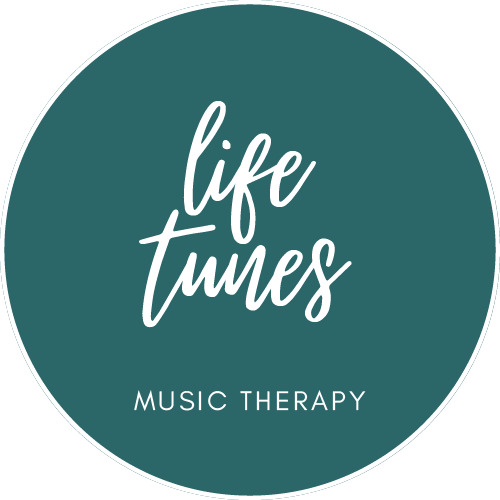What IS Music Therapy?!
“Music Therapy….? Does it really work? And how does it work?”
This is a question I’ve been asked way too many times in the course of my career as a music therapist. I think it’s safe to say that most of us have experienced how powerful music can be. And I simply couldn’t imagine what life would be without its existence.
Well, before I get into what IS music therapy- I’d like to kindly divert your attention to the following scenarios..
Remember the time where you turned on the radio and a song that you were really fond about came on? And memories that came with the song started to project in your brain like a personal cinema of some sort.
Perhaps it was a sweet memory, and you were smiling from ear to ear, reminiscing that moment. And for some- it could be a painful experience, and before you know it, tears started streaming down your cheeks. Perhaps it’s a song that you listen to after a heartbreak, and somehow you always feel better, after listening to that few lines of lyrics that speaks directly to your heart.
The truth is, music has the power of making us feel different kinds of emotions. And feeling the emotion is a great sign of emotional health- in fact, it helps with the process of healing and wholeness.
Did you know that whenever you’re engaging in a musical activity, be it listening, playing, singing- dopamine and endorphin are being released into your body? These are often being known as the “feel good” hormones that gives one a happy state of mind, and even being a great pain reliever as well! (Montgomery, 2016)
So, is listening to music= music therapy?
While listening to a moving piece of music could be therapeutic, and there are many benefits in engaging in a musical activity for one’s mental health. However, it is not music therapy.
“Music therapy is the clinical, reflexive, research based use of music interventions by a credentialed/ licensed music therapist to realize individualized goals through musical and professional therapeutic relationship.” (Malaysian Music Therapy Association Website)
A session of music therapy is first assessed by a credentialed music therapist to identify the needs and goals of the client, which will then construct a plan with the use of music interventions (such as singing, music improvisation, songwriting, music assisted relaxation, etc) to achieve individualized goals (such as emotional, social, physical, communication, cognitive, quality life, etc) in a therapeutic context.
This simply means that every music therapy session may look different from client to client, as every individual’s needs and preferences are different. For some sessions it could look like using music assisted relaxation to decrease stress and anxiety, and it doesn’t involve talking/ singing from the client- and this could be perfect for non-verbal children with life threatening illness who are constantly in distressed or pain, as music could provide a safe space for them, and to promote relaxation and regulate their heartbeat especially when in pain. On the other hand, a session could look like using songwriting to engage a client with depression to help them process their thoughts and feelings into a song- and the process itself is highly therapeutic. We’d discuss more on how music therapy benefits different populations in blog posts to come.
I can’t sing or play an instrument- can I still participate?
Absolutely yes! One can still participate and benefit from music therapy if he/she does not have any musical background. The goal in music therapy is never to achieve perfection; we’re not trying to write the next hit song, or to perfect this song we’re learning- we value the process, and the process itself is therapeutic. We always encourage our clients that even if you don’t know any musical instruments, you still have your voice- voice is a type of instrument, too! Human beings are inclined to music- it is in our nature to clap along, or to move along with a song. Trust the music to guide you, and we’ll be there to guide you in this journey as well.
In music therapy, we’re always finding the gold in you.
As music therapists, we’re always trying to set our clients for success. I’ll always remember what one of my music therapy professors once said, “The goal of music therapy is to find what the clients can do, and not what they cannot do.” We believe in empowering one with their strengths, giving them tools to help them to achieve goals and unleash their very potential in their respective journeys.
We hope that this blog post will bring some clarity and more understanding of what this profession is, and how it could potentially benefit you or your loved ones. If you find this post helpful, please help us to share this with your friends and family, and help us to advocate this beautiful profession, so that more people in Malaysia can benefit from this.
About Life Tunes Music Therapy:
Life Tunes Music Therapy was founded in 2020 by Ivy Tan, MT-BC (board certified- music therapist) with a mission to empower individuals in thriving in both physical and emotional well-being. Currently based in Johor Bahru, Life Tunes Music Therapy provides music therapy services online and in-person (Johor Bahru area only). With the motto of “Changing lives one tune at a time”, we believe in the power of change that comes with the healing power of music.
References:
Info cards. MMTA. (n.d.). Retrieved September 20, 2021, from https://www.mmta.org.my/info-cards.
Montgomery, E. (2016, November 1). The science of music therapy. Peterson Family Foundation. Retrieved September 20, 2021, from https://petersonfamilyfoundation.org/music-therapy/science-music-therapy/.
